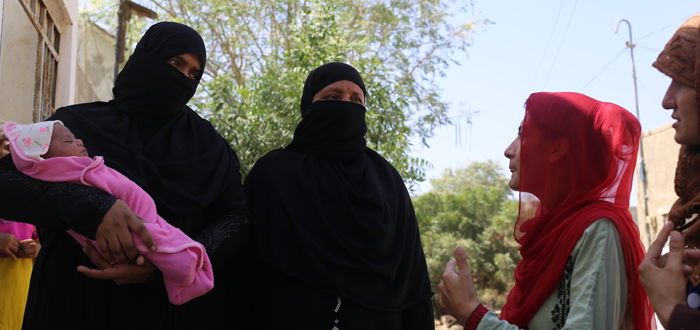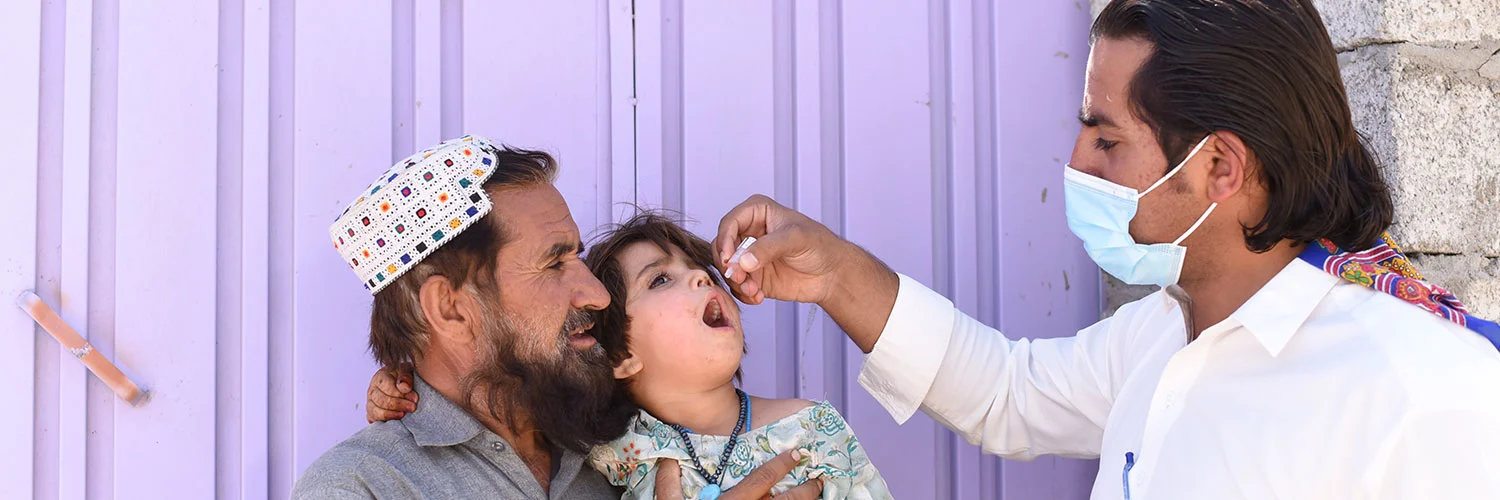
By Sidrah Roghay
Karachi, Sindh, Nov. 18, 2015: “Thanks to the health camp, I have not only been able to consult a doctor for my protracted illness but it also helped me vaccinate my three children aged 6 months, 2 and 3 years,” said Noor Alam Bibi living in Farid Colony of Orangi Town, Karachi.
Health camps seem to have not only become a hub for providing medical services for neglected communities of Karachi but also proving to be a pivotal innovation to administer polio drops to children who have not been vaccinated through routine, national and sub-national campaigns as well as newborn children.
Since the establishment of the health camps in early January this year, more than 92,000 children have received polio vaccination over the past eleven months at 939 camps established in Karachi.
Karachi, the only cosmopolitan of the country, is amongst 12 districts of Pakistan where polio virus is still circulating. Although the country has registered the lowest refusal rate (0.13%) among all endemic countries, there have been pockets of refusals in some UCs of Khyber Pakhtunkhwa, the Federally Administered Tribal Areas, Quetta and Karachi.
The data reveals that vast majority of refusals came not because of cultural or religious beliefs but due to community’s demand for provision of basic health services—which were non-existent in most of these areas in Karachi.
To cater to this demand the Government developed Emergency Operation Centres (EOC) for polio eradication in all provincial capitals and set up 2,500 health camps in high risk zones all over Pakistan. One such camp in Farid Town of Karachi which is helping an effective trust-building mechanism with the communities resulting in reaching out to children who have been continuously missed in vaccination as well as overcoming refusal cases.
These health camps do not deliver polio vaccines only but rather promote and expand access to basic primary health care. They are thus developing a much-needed and trusted relationship with these communities living in unhygienic conditions.
“We thought their needs were valid, so we began this initiative, and the idea is working”, said Muhammad Bilal, Health Camp Zonal Supervisor. Now people come to the doctors at health camps for myriad of issues, from eye infection to diarrhea with their children and health workers ensure that their children get the essential polio vaccine drops, informed Bilal.
In sensitive areas which are prone to attacks, the camp is usually set up at the residence or space given by the elder, who ensures the security of the health workers. The camp runs from 8 in the morning till 12 noon.
Men and women queuing up outside the camp can be witnessed throughout these timings. One can see happy and smiling faces emerging out of the doctor’s cabin every now and then simply because they were not charged for consultation rather were given free medicines and even spectacles, if needed.
Two female health workers usually stationed outside Doctor’s cabin, vigilantly welcome each and every family coming to see the doctor especially those who were carrying their children with them. Before or after the consultation, these health workers engage the parents in friendly conversations and find out about polio vaccination. If the children found to be not vaccinated earlier, they would seize the opportunity to administer one then and there. Most of the parents, do not even wink an eye or say a single word rather happily get their children vaccinated and promise to bring the child back for next round of drops at required time. “That’s how you have to do it here,” said Nadia Riaz, a health worker.” When you develop a comfort level, with the mother in the presence of her husband, it is easy to convince them.”
“Since we are providing medicines for other ailments, it really becomes easy to get into the community as a general physician and then convince them to vaccinate their children against polio as well.”

